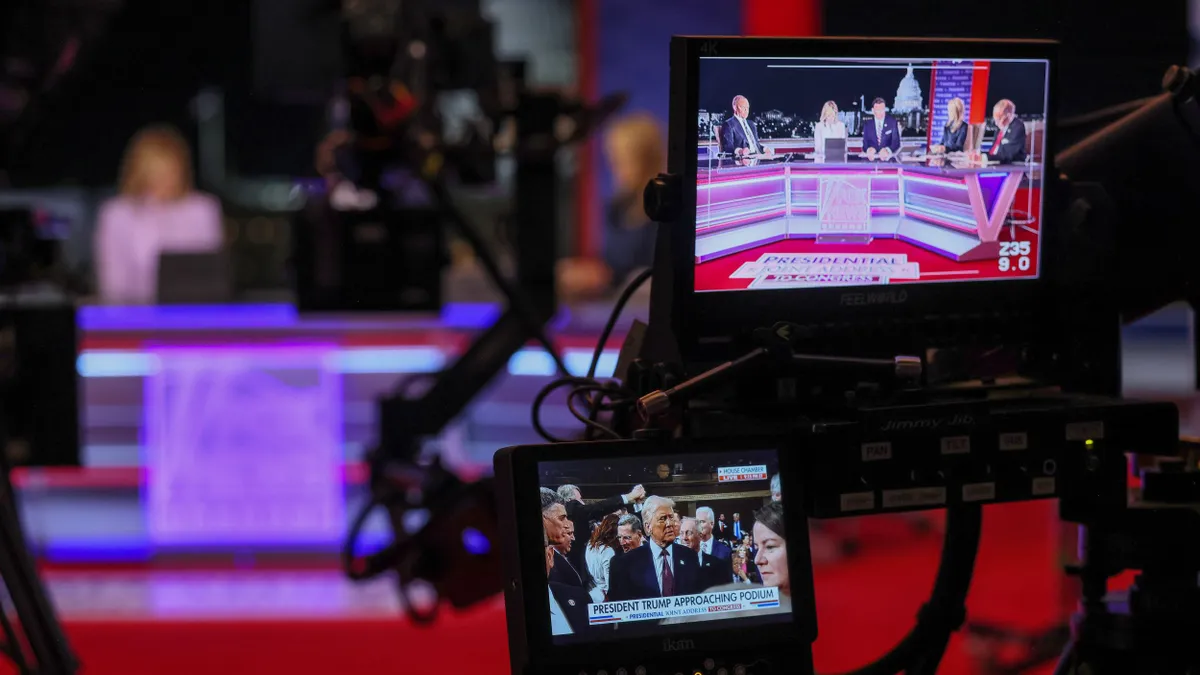Dive Brief:
- Nearly 7 in 10 employees surveyed said they don’t want to discuss politics at work, according to Monster's Politics in the Workplace Report, released Tuesday. Fourteen percent of workers went as far as to say they’d rather have a cavity filled than talk politics at work.
- But that doesn’t mean it doesn’t happen. Of the more than 900 U.S. employees surveyed, 67% said they have talked about politics with their co-workers, and 45% felt pressure to express their beliefs.
- Workers said they were most often pressured to share their opinions during informal conversations with their colleagues, group meetings, interactions with clients or vendors and talks with their manager or supervisor.
Dive Insight:
"Political discussions can quickly move from conversation to confrontation," Vicki Salemi, Monster career expert, said in a statement. “When workers feel pressured to share or defend their beliefs, it erodes psychological safety. Employers need to establish clear boundaries that foster respect, neutrality, and inclusion."
Sixty percent of workers said they think politics should be completely avoided in the workplace, and 59% said they believed talking about politics could have a negative effect on their career.
Monster offered some tips for employers on how to help workers navigate politics at work:
- Establish clear communication policies that promote professionalism and respect.
- Provide manager training to identify political bias or discrimination.
- Focus on inclusion, collaboration and shared organizational goals, not ideological alignment.
- Develop a workplace culture that values civility and focuses on common objectives.
A researcher previously told HR Dive that companies should “be consistently messaging” about guidelines and that HR and other business leaders should focus on what should happen, not what shouldn’t.
Despite ongoing political changes at the federal level, 73% of HR leaders said they believe they can lead through the uncertainty, according to a May report from The Conference Board.















